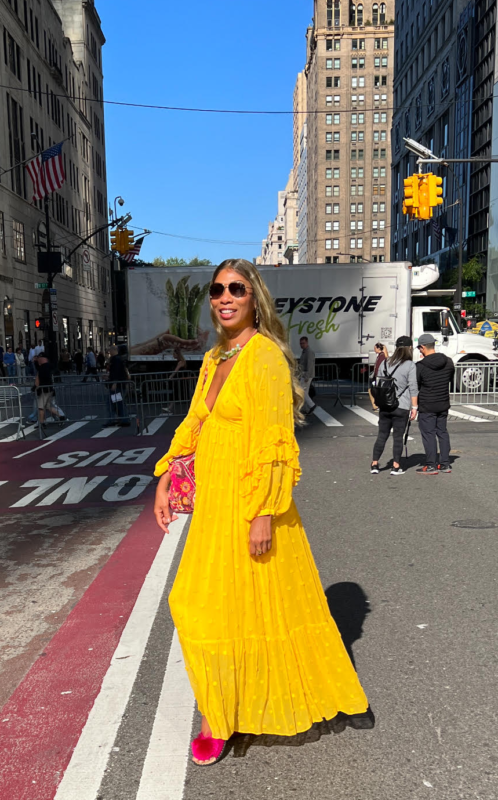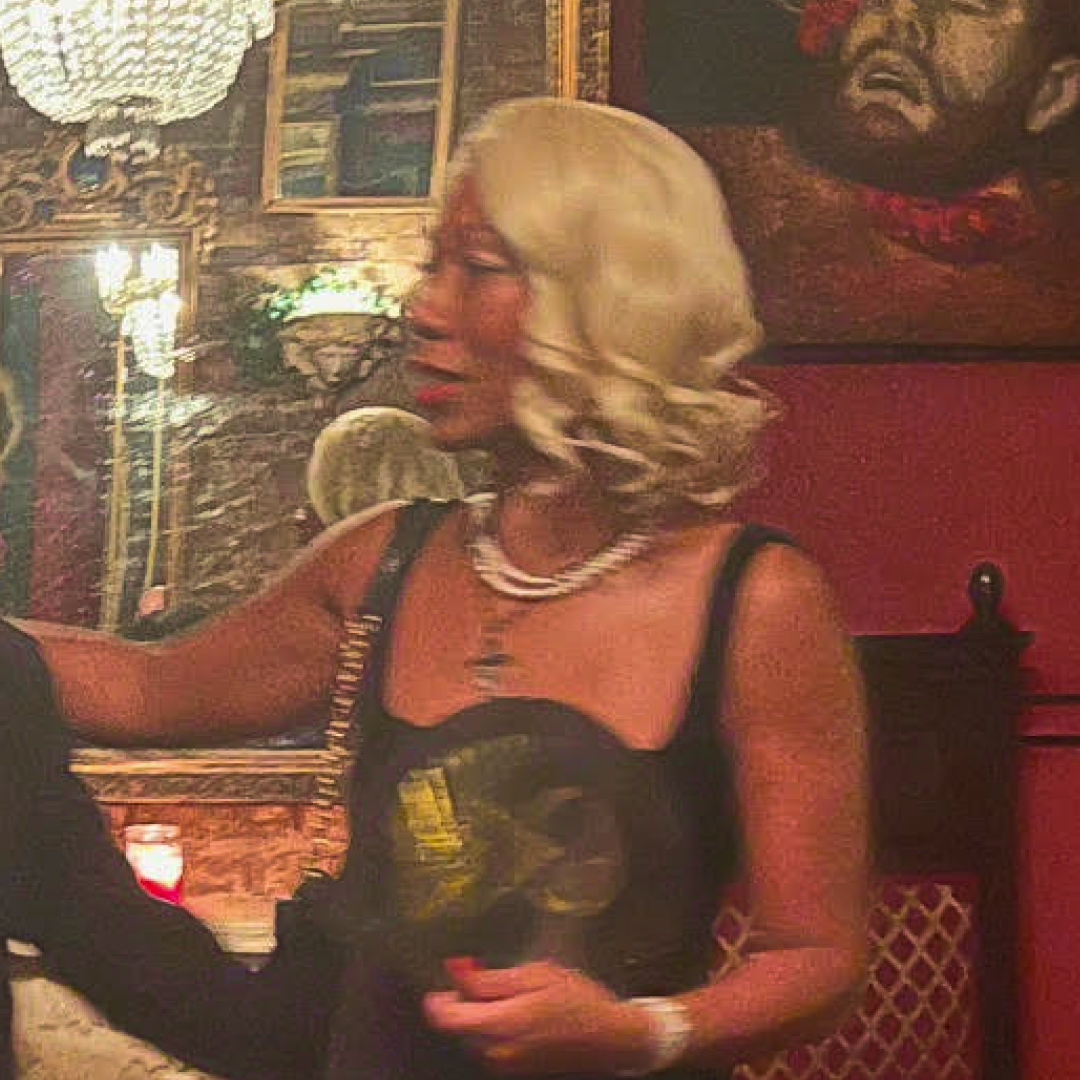Nicollette Ramirez wears many hats. She is the host of the Art World Confessions YouTube channel and The Beez and Honey Podcast, a children’s writer, producer, and private dealer. Fine Art Shippers discussed with her the inspiration for her books, her famous art parties, and the latest trends in the art world.
Artist Talk: Nicollette Ramirez on Art as a Universal Connector
You are a writer, producer, event organizer, and private art dealer. As an introduction, could you describe what brought you into the art world, and how you combine all these roles?
Nicollette Ramirez: I studied art history and writing at New York University. One day, an art critic I knew suggested I write about art since I was often at art events and was a writer. This advice led me to start reviewing exhibitions and sharing my perspective on the art world. I found some success in this because I chose to write only about the art I liked. I didn’t critique in the traditional sense; I didn’t discuss what worked or didn't or the relevance of the art. Instead, I wrote about what made me happy or caught my eye, and that's still what I do to this day.
These days, my activities vary during different periods. Right now, I'm mainly selling things; but other times, I work on writing a book or hosting my podcast, where I interview people whose perspectives I would like to share with my audience.
Which specific art forms or art history periods are you interested in?
My background is in Western art history, but I've always been passionate about diverse cultural art forms, particularly those outside the mainstream Western art market. I believe art encompasses more than what sells in galleries or auctions. For me, the success of a project isn't just about sales; it's about the lifelong impact and experience of creating something meaningful with the artist.
To give you an example, one of my curatorial projects especially close to my heart involved Israeli-American artist Uri Dotan, whom I've known for over twenty years now. About a decade ago, we collaborated on an exhibition on Manhattan's Lower East Side, featuring his paintings of Palestinian women with children on the beach. This provoking project felt significant even then but seems especially relevant now amid global sociopolitical events.
You have a YouTube channel and a podcast. How did these come about? What was your initial vision, and what message did you aim to convey?
I would say my decision to start the podcast and YouTube channel was somewhat selfish. I wanted to share my ideas and the art I loved. These projects came about in 2020 after I had my son and became somewhat limited in my access to the art world. To stay connected and keep the conversations going, I decided to bring people from the art world into my own space. Even though I wasn't organizing many exhibitions or selling a lot of art at the time, I could still share the perspectives of the people I knew, talk about their art collections, and discuss various topics. This allowed me to maintain my relevance in the art world and stay in touch with its community.

Since you mentioned your son—you are the author of several children's books. Is it fair to say that you began writing these books after having your son? Could you share the stories and inspirations behind them?
I often get inspired by the people I work with, and my son's creativity is a big part of that. He's also the grandson of a famous American writer, which adds to our creative environment. We sometimes come up with ideas together. For example, he once had a story idea, and I helped him turn it into his book. In turn, this inspired me to write my own book too. It's a children's book, but adults might like it as well because it talks allegorically about some contemporary societal issues that many of us can relate to.
You are also famous for your themed art parties in New York City. Can you talk of the most memorable one?
I've been hosting these artistic parties for over twenty years. One memorable event was in the early 2000s at Uri Dotan’s studio in the West Village. We collaborated with Spencer Tunick, renowned for his large-scale human nude installations. During this event, people went completely nude and were photographed on the roof deck in November. This party, where most attendees participated in the shoot, became a talking point for years.
We pick a different fun theme every year. One time, we did a James Bond movie theme to go along with a new movie release, since my long-time co-host is a huge fan of those films. He often brings his European friends. Other themes have included the Great Gatsby and superheroes. Our guests vary widely in age and background, so these parties are always thrilling and unpredictable. Many of our guests are regulars, but there are always new faces, too.
Which latest trends and developments in the art world have you observed and find especially important?
I think in America, there's a strong emphasis on diversity, including various voices across gender, race, ethnicity, or sexual orientation. Another trend is the growing expectation for accountability. The idea that one can't just launder their reputation by associating with art institutions or philanthropy, especially if their wealth was acquired through questionable means, has gained traction.
There's also an issue with censorship in the art world, where voices are being silenced on sensitive topics like the situation in the Middle East. This includes editors being fired for expressing their views or artists being excluded from exhibitions due to their regional background. I see this as anti-art, a contradiction to what art should represent.
In your opinion, what role does art play in contemporary society, and what power does it hold?
This is a complex question and it's hard to cover every aspect, but I believe the basic role of art is to remind us of our divinity, which means recognizing that we are souls in bodies and that there's more to life than just the physical world we see. Art's primary role, I think, is to connect us through the creative process, surpassing all boundaries of class, color, and gender. It's a universal connector.
Interview by Inna Logunova
To learn more about Nicollette Ramirez and her projects: https://www.beezandhoney.com/ Photo courtesy of Nicollette Ramirez
